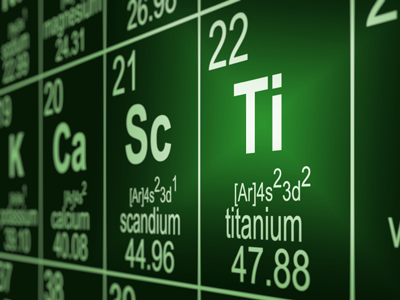In this GCSE Chemistry quiz, one in a series on the subject of metals, we look at some of the problems associated with the extraction of metals from their ores, such as the financial and the environmental costs.
Metallurgy is the science of metals and it has changed the way people live their lives. However, there are many issues involved with the extraction and processing of metals, from the initial removal of the ore from the ground to the production of the finished items. Some are purely environmental problems but others involve people too. For the GCSE, you need to be able to consider and evaluate the social, economic and environmental impacts of exploiting metal ores, of using metals and of recycling metals. But don't worry, much of it is common sense and some general knowledge. Several of the issues you learnt whilst studying the quarrying of limestone can be applied to mining.
Mining metal ores involves digging out and processing large quantities of rock. Many of these mines penetrate deep into the Earth but some are open - they are literally massive holes in which which huge machines are used to extract the ore. But what is an ore? Simply put, if a rock contains a high enough concentration of a metal to make it economically worth extracting, then it is an ore. The terms high grade and low grade are applied to ores. You can probably guess what these terms mean. Over time, the price that manufacturers will pay for a metal changes and it is possible that over time, the economics of ore extraction may also change, making it worthwhile to extract low grade ores.
One major environmental problem with mining ores is what to do with the spoil (waste material from the mining) as this contains traces of the ore which is often toxic. When it rains, traces of the metals can leach out. This leaching can spread the toxic waste more widely into the environment. An example of this is from lead mining in Derbyshire. Around the lead mines, which have not been worked for over a century, the only plants that grow on and near the spoil heaps are species that are not killed by lead and the other metals that were mined, like zinc and copper. However, this spoil has lead to some new mining methods being developed.
Phytomining is a method of extracting metals from low grade ore and spoil. Metal tolerant plants are deliberately grown on mining waste then harvested and a new crop planted. The harvested plants are treated and the metals extracted. This has many benefits - it reduces the levels of toxic metals in the environment, increases the quantity of metal extracted from a mine and increases the profit for the mining company. The disadvantages are that it is slow and relatively expensive as only small amounts of metal are produced. A similar method using bacteria has also been developed - bioleaching.
Issues surrounding the extraction of the metals from their ores are the use of energy and the production of carbon dioxide during the processing. In the blast furnace, there is a lot of CO2 produced, since carbon is used as the reducing agent. During the production of aluminium, the carbon anodes burn away in the oxygen that is produced during the electrolysis of the bauxite, producing carbon dioxide. It also uses vast quantities of electricity - producing that electricity will release carbon dioxide into the air too.
Another method of reducing the problems of metal extraction is to avoid it entirely by recycling metals. It is not possible to recycle everything so there will always be a need for mining and extraction of metals.








